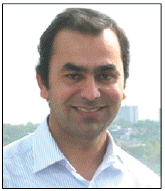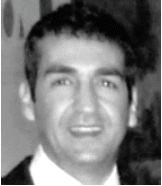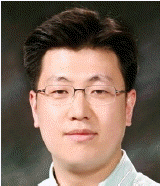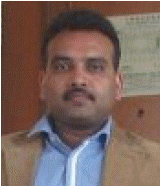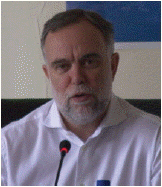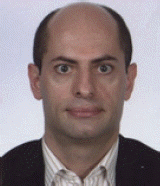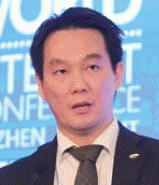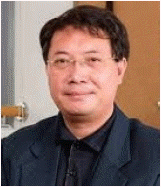Advances in Multimedia Computing and Security and the Introduction of New Senior Editors
Article information
1. Introduction
The Journal of Information Processing Systems (JIPS) is the official international journal of the Korea Information Processing Society, and has become the leading journal in the various areas of information processing technology in Korea that was indexed in ESCI, SCOPUS, EI, DOI, DBLP, COMPENDEX, EBSCO, Google Scholar, and CrossRef. This rapid growth represents result as paper submissions amount of papers submitted in 2016 is about 15 times higher than in 2013. Thus, the accepted rate has been decreasing, which means that we have been publishing outstanding papers from the high competition.
This issue contains 14 peer-reviewed papers that cover the areas of advanced multimedia computing and security, which include theoretical research presenting new theories and techniques. It introduces as a new image clustering method [1], community model for Smart TV [2], eigenspaces for extracting features from facial images [3], an interactive authoring tool for mobile augmented reality (AR) content [4], an image deblocking scheme for JPEG compressed images [5], an image-centric integrated data model of medical information by diseases [6], the sparsification of digital images [7], treatment planning in smart medical technology [8], the detection of Korean vehicle license plates [9], and the acceleration of group fusion on multi-cores [10]. This issue also includes advanced security research [11,12] on multimedia security, a novel DWT-SVD canny-based watermarking [13], and a blind color images watermarking [14].
We’ve invited new senior editors, who are highly-esteemed professors and researchers, to join our Editorial Board in order to significantly improve JIPS. They have been doing an excellent job in filtering out unsuitable papers and finding outstanding ones that will improve the journal’s reputation and competitiveness. We would not not be able to continue to expand the growth of JIPS without their efforts, so I would like to express my sincere appreciation and gratitude to the Editorial Board members for their continued hard work and dedication to JIPS. It is my great pleasure to introduce their research outcomes and welcome our new senior editors.
2. New Senior Editors
Muhammad You as is a senior lecturer in computing at the Department of Computing and Communication Technologies and Oxford Brookes University, UK. His research interests include web and Internet technologies, service-oriented computing, and pervasive and mobile information systems. You as received a Ph.D. in Computer Science from the University of Sheffield, UK. He is a member of the IEEE Computer Society, International Journal of Service-Oriented Computing and Applications (Springer), International Journal of Web Information Systems (Emerald), and Human-centric Computing and Information Sciences (Springer). He has also been actively serving as the Chair and PC member for the following international conferences: the 2nd IEEE International Conference on Big Data Computing Service and Applications (BigDataService2016), March 29–April 1, 2016, Oxford, UK; the 10th IEEE International Symposium on Service-Oriented System Engineering (SOSE2016), March 29–April 1, 2016, Oxford, UK; the 22nd IEEE International Conference on Web Services (ICWS2015), June 27–July 2, 2015, New York, NY; the 28th IEEE International Conference on Advanced Information Networking and Applications (AINA2014), May 13–16, 2014, Victoria, Canada; the 12th IEEE International Conference on Services Computing (SCC2015) June 27–July 2, 2015, New York, NY; and the 8th IEEE/ACM International Conference on Utility and Cloud Computing (UCC2015), December 7–10, 2015, Limassol, Cyprus.
Houcine Hassan has been an associate professor in the Department of Computer Engineering at the Polytechnic University of Valencia, Spain, since 1994. He received a M.S. and Ph.D. in Computer Engineering from the Polytechnic University of Valencia in 1993 and 2001, respectively. He joined the Industrial Informatics Group in 1993, where he is participating in several research projects. His research interests cover a wide range of aspects in the development of hardware and software architecture, including real-time system support, embedded systems, hardware/software co-design, ubiquitous computing, AI agent-based systems, autonomous systems, sensor networks, robotic architectures, behavioral and emotional systems, application and scheduling integration, and QoS.
Youn-Hee Han is a professor at Korea University of Technology and Education. He received his B.S. degree in Mathematics from Korea University, Seoul, Korea, in 1996. He received his M.S. and Ph.D. in Computer Science and Engineering from Korea University in 1998 and 2002, respectively. From March 4, 2002 to February 28, 2006, he was a senior researcher for the Next Generation Network Group of Samsung Advanced Institute of Technology. Since March 2, 2006, he has been a professor in the School of Computer Science and Engineering at Korea University of Technology and Education, Cheonan, Korea. His primary research interests include the theory and application of mobile computing, including protocol design and mathematical analysis. Since 2002, his activities have focused on mobility management, media independent handover, and cross-layer optimization for efficient mobility support. His research topics also include the communication between mobile sensor/actuator networks, social network analysis, and big data analysis. He has published approximately 150 research papers on the theory and application of mobile computing, and has filed 25 patents in the field of next-generation Internet. In addition, he has made several contributions in IETF and IEEE standardization, and served as the co-chair of a working group in Korea known as the TTA IPv6 Project Group.
Naveen Chilamkurti currently serves as the acting head of the Department of Computer Science and Computer Engineering at La Trobe University in Melbourne, Australia. He is also the editor-in-chief of the International Journal of Wireless Networks and Broadband Technologies, which was launched in July 2011. He is currently serving as a technical editor for IEEE Wireless Communications and as an associate technical editor for IEEE Communications Magazine. He has published about 165 journal and conference papers. His current research areas include intelligent transport systems, wireless multimedia, wireless sensor networks, and so on. He is also an associate editor for International Journal of Communication Systems (Wiley) and Security and Communication Networks (Wiley).
Professor Stefanos Gritzalis is the Rector of the University of the Aegean in Greece Since September 2014. He is a professor in the Department of Information and Communication Systems Engineering and member of the Info-Sec-Lab Laboratory of Information and Communication Systems Security from May 2002. He holds a B.Sc. in Physics, a M.Sc. in Electronic Automation, and a Ph.D. in Information and Communications Security from the Department of Informatics and Telecommunications, University of Athens, Greece. His published scientific work includes more than 30 books or book chapters, including the book Digital Privacy: Theory, Technologies and Practices that was co-edited by A. Acquisti, S. De Capitani di Vimercati, and C. Lambrinoudakis (Auerbach Publications, Taylor and Francis Group). His work has been published in 118 journals and in the proceedings of 156 international conferences and workshops. The focus of his publications is on Information and Communications Security and Privacy. His most frequently cited papers have more than 3,900 citations; h-index=35, i10-index=108, as measured by Google Scholar. He has been the guest editor of more than 30 special issue journals, and has served as a general chair or program committee chair for more than 40 international conferences and workshops. He has also served as a program committee member of more than 450 international conferences and workshops. He’s serves as the editor-in-chief, editor, and editorial board member for 30 journals and as a reviewer in more than 70 scientific journals. He has supervised 13 PhD dissertations and has acted as an external evaluator for more than 30 PhD students from Germany, Italy, Spain, India, Greece, etc. He has acted as an external reviewer for research proposals submitted to: the Netherlands Organisation for Scientific Research, the Czech Science Foundation, the FFG Austrian Research Promotion Agency, the ETH Zurich Research Commission, the Croatian Ministry of Science and Education, the Slovenian Research Agency, South Africa’s National Research Foundation, the Qatar Foundation–Qatar National Research Fund, the University of Nicosia Research Foundation in Cyprus, and the Greek General Secretariat for Research and Technology, etc. Moreover, he was a member of the 2015 Technical Recognition Award Selection Committee for the IEEE Communications & Information Security Technical Recognition Award. He has been involved in several national and EU funded R&D projects. His professional experience includes working as a senior consultant and researcher for a number of private and public institutions. He was elected twice as a Member of the Board (Secretary General, Treasurer) of the Greek Computer Society. He is a member of the Hellenic Association for Information Systems (AIS Hellenic Chapter), the Association for Computing Machinery (ACM), the Institute of Electrical and Electronics Engineers (IEEE), and the IEEE Communications Society’s Communications and Information Security Technical Committee.
Luis Javier García Villalba received a Telecommunication Engineering degree from the Universidad de Málaga, Spain in 1993 and holds a Ph.D. in Computer Science (1999) from the Universidad Politécnica de Madrid, Spain. He was a Visiting Scholar at COSIC (Computer Security and Industrial Cryptography at the Department of Electrical Engineering, Faculty of Engineering, Katholieke Universiteit Leuven, Belgium) in 2000 and a Visiting Scientist at IBM Research Division (IBM Almaden Research Center, San Jose, CA, USA) in 2001 and 2002. He is currently an Associate Professor of the Department of Software Engineering and Artificial Intelligence at the Universidad Complutense de Madrid (UCM) and Head of Complutense Research Group GASS (Group of Analysis, Security and Systems) which is located in the Faculty of Computer Science and Engineering at the UCM Campus. His professional experience includes research projects with R&D companies such as Hitachi, IBM, Nokia, and Safelayer Secure Communications, among others. He has also taken part in projects from The European Union Framework Programme for Research and Innovation (Horizon 2020). His main research interests are computer security and computer networks.
Kim-Kwang Raymond Choo received his Ph.D. in Information Security in 2006 from Queensland University of Technology, Australia. He currently holds the Cloud Technology Endowed Professorship at the University of Texas at San Antonio. He is the recipient of various awards, including ESORICS 2015 Best Paper Award, Winning Team of Germany’s University of Erlangen-Nuremberg (FAU) Digital Forensics Research Challenge 2015, the 2014 Highly Commended Award from the Australia New Zealand Policing Advisory Agency, a Fulbright Scholarship in 2009, the 2008 Australia Day Achievement Medallion, and the British Computer Society’s Wilkes Award in 2008. He is a fellow of the Australian Computer Society and a senior member of IEEE. He can be contacted at raymond.choo@fulbrightmail.org, and his Google Scholar profile is on http://scholar.google.com.au/citations?user=rRBNI6AAAAAJ&hl=en.
Ka Lok Man holds a Dr. Eng. in Electronic Engineering from Politecnico di Torino, Italy, and a Ph.D. in Computer Science from Technische Universiteit Eindhoven, the Netherlands. He has several years of industrial experience in integrated circuit design and has been involved in many industry-oriented research projects in microelectronics and computer science, many of them in cooperation with STMicroelectronics, Synopsys, and LG. He has a good publication record with more than 400 published academic articles (with a citation record of 1,000+), along with books, edited books, journal articles, book chapters, and conference proceedings. Over the years, he has received several best paper awards at international conferences, research awards, and grants from the Italian government, Portuguese Research Council, Korean Research Council, Lithuanian Research Council, IEEE, and industry groups. He has served as a committee member, reviewer, session chair, general chair/co-chair of different IEEE, IASTED, and IAENG conferences. He is also the editor-in-chief/editor of over 50 international scientific and engineering journals, and the lead guest editor of many special issue journals that are indexed in the SCI database. He is currently a professor in the Department of Computer Science and Software Engineering at Xi’an Jiaotong-Liverpool University in Suzhou, China and is supervising six PhD students and a number of MSc and UG students. In addition, he is a senior research scientist at the Baltic Institute of Advanced Technologies, Lithuania. Furthermore, he established the Wireless Sensor Network Laboratory (http://datics.org/DATICS-WSNLab) of the Department of Computer Science and Software Engineering at Xi’an Jiaotong-Liverpool University and the international DATICS (Design, Analysis and Tools for Integrated Circuits and Systems) Research Group (http://datics.org).
References
Biography
James J. (Jong Hyuk) Park
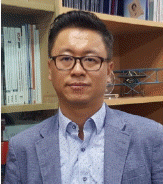
He received a Ph.D. degree from the Graduate School of Information Security from Korea University, Korea and the Graduate School of Human Sciences from Waseda University, Japan. From December 2002 to July 2007, Dr. Park had been a research scientist for the R&D Institute, Hanwha S&C Co. Ltd., Korea. From September 2007 to August 2009, he had been a professor at the Department of Computer Science and Engineering, at Kyungnam University, Korea. He is now a professor in the Department of Computer Science and Engineering and Department of Interdisciplinary Bio IT Materials at Seoul National University of Science and Technology (SeoulTech), Korea. Dr. Park has published about 200 research papers in international journals and conferences. He has served as the chair, on a program committee, and as an organizing committee chair for many international conferences and workshops. He serves as the steering chair of international conferences, such as MUE, FutureTech, CSA, CUTE, UCAWSN, and World IT Congress-Jeju. He is editor-in-chief of Human-centric Computing and Information Sciences (HCIS) by Springer, the Journal of Information Processing Systems (JIPS) by KIPS, and the Journal of Convergence (JoC) by KIPS CSWRG. He is the associate editor/editor of 14 international journals, including JoS, JNCA, SCN, CJ, and so on. In addition, he has been serving as a guest editor for international journals by the following publishers: Springer, Elsevier, Wiley, Oxford University Press, Emerald, Inderscience, and MDPI. He has received best paper awards from ISA-08, ITCS-11, and IEEE AINA-15 conferences, and outstanding leadership awards from IEEE HPCC-09, ICA3PP-10, IEE ISPA-11, PDCAT-11, and CUTE-15. Furthermore, he won outstanding research awards from SeoulTech, 2014. His research interests include IoT, human-centric ubiquitous computing, information security, digital forensics, vehicular cloud computing, multimedia computing, etc. He is a member of the IEEE, IEEE Computer Society, KIPS, and KMMS.
